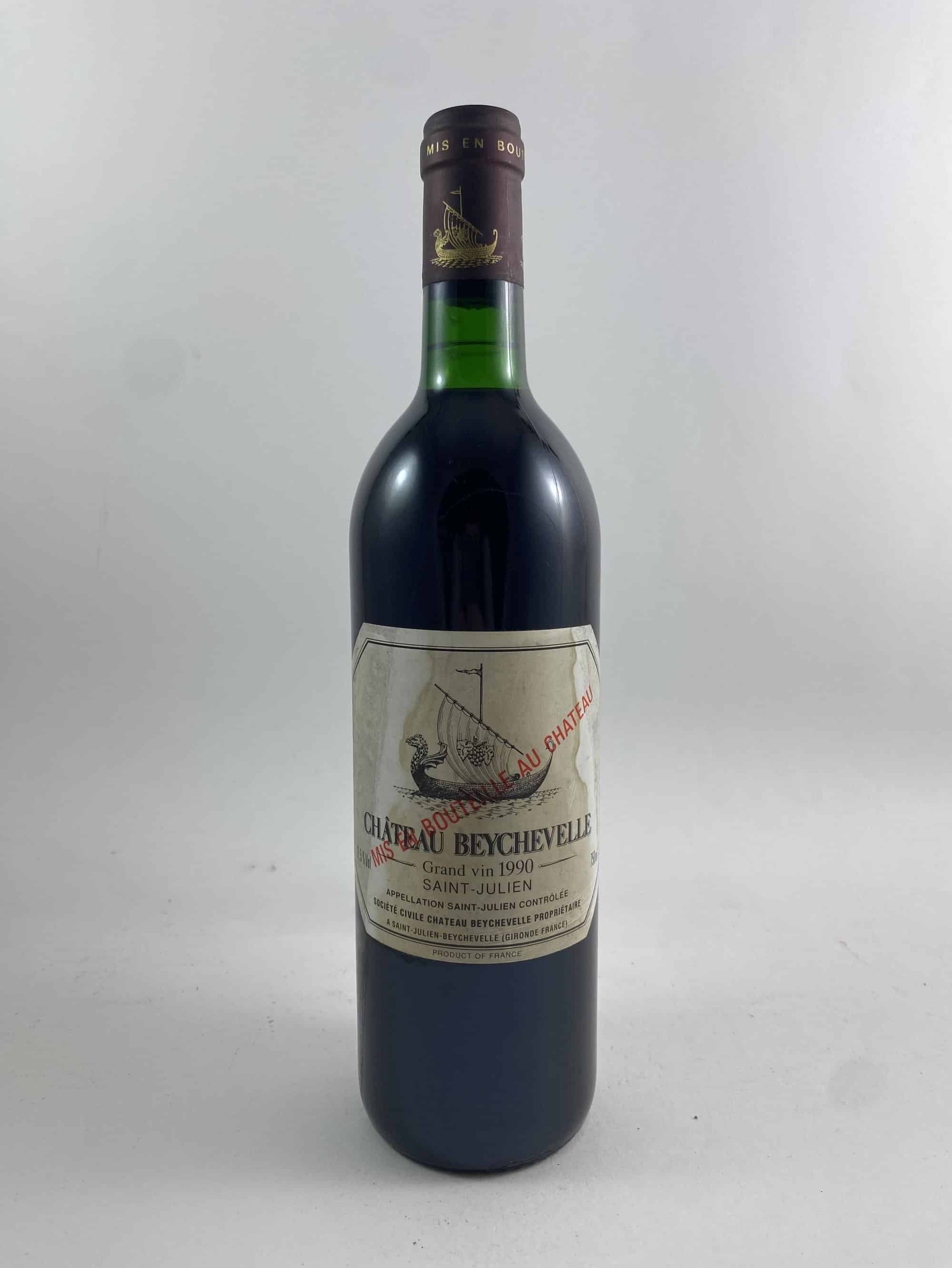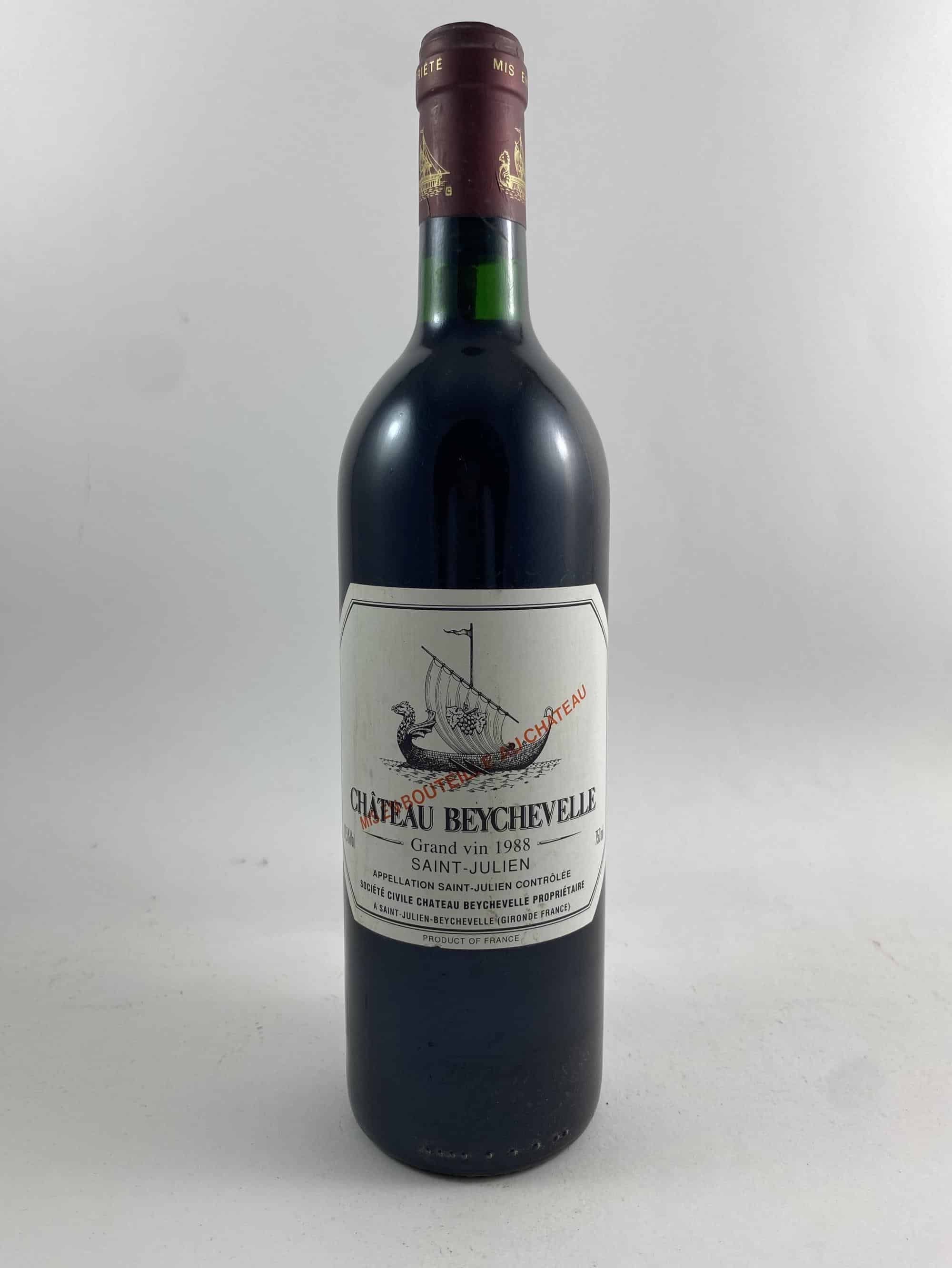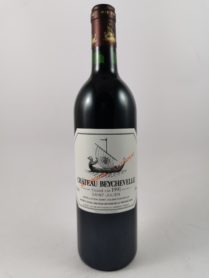Wine Château Beychevelle
-

Château Beychevelle 1990
€117.60 – €130.80Saint-Julien | Red | 0,75 L
-

Château Beychevelle 1988
€88.80Saint-Julien | Red | 0,75 L
-

Château Beychevelle 1991
€82.80 – €118.80Saint-Julien | Red | 0,75 L
Beychevelle wine is one of the tastiest wines in France. Rich in history, this Cru Classé is produced in a vineyard of 250 hectares, of which 90 hectares are devoted to vines. The prestigious Château bears the name of the commune in which it is located: Saint-Julien-Beychevelle. What distinguishes its wines? What is its history? Where is the domain located and what are its specificities? What are the conditions of maturation? Finally, what distinguishes Beychevelle wine in terms of flavor? Read on to learn all about it.
Beychevelle wine: presentation of the château
A land of wine and legend, the Château Beychevelle estate produces one of the best wines in France. It is the 4th Grand Cru Classé of Saint-Julien. The prestigious Château is distinguished by its three centuries of history. Rebuilt in 1757, it is one of the jewels of the Bordeaux region. For centuries, the various owners of Château Beychevelle have provided it with the best parcels. It is a vast estate of 250 hectares where tradition has lost none of its charm and flavor.
The history of Beychevelle wine, its castle and the different owners
Over the centuries, powerful families have succeeded one another in this prestigious estate. It should be remembered that the very first castle was built in 1565, well before the Beychevelle we know today. It was an initiative of Bishop François de Foix-Candale.
The era of the Duke of Épernon
After his death, his niece inherited the castle. She was the wife of the first Duke of Épernon, Jean-Louis Nogaret de la Valette. The latter was also the great admiral of France and the sweetheart of the king of the time, Henry III. The duke also held the position of governor of Guyenne. It was at the beginning of the 17th century that the Duke of Épernon became the owner of the first Château Beychevelle.
The reconstruction of Château Beychevelle
It was not until 1757 that the building was rebuilt, giving rise to the Château Beychevelle that we know today. It was a project led by the Marquis de Brassier de Brudot who was the new owner of the estate. It is a great family of barons. It was during this period that the wine of Château Beychevelle began to acquire its Grand Cru status. This was during the 17th century.
The French Revolution and beyond
The Brassiers’ stay at Château Beychevelle did not extend beyond 1789, the date of the storming of the Bastille that marked the beginning of the French Revolution. All his property, including his castle, was confiscated for the benefit of the new nation. The estate was bought by Madame de Saint-Hérem, who was born Brassier, but she quickly sold it in 1801 to the wealthy Jacques Conte, a ship owner from Bordeaux. In turn, the latter sold the estate in 1825 to Pierre-François Guestier, one of his grand-nephews. Later, in 1874, the rich banker Armand Heine bought Château Beychevelle. During his time, work was begun to add a wing to the palace and to renovate the cellars.
The Achille Fould era
For three generations, Château Beychevelle has remained the property of the Achille Fould family. Among the notable owners was Aymar Achille-Floud, another politician who was responsible for the building’s prestige.
Today, Grands Millésimes, owned by the Castel Group and Suntory, owns Château Beychevelle. The estate is managed by Aymar de Baillenx, president of Grands Millésimes de France.
Beychevelle wine : the domain and its specificities
The Château Beychevelle estate is distinguished by the high density of its vines: between 8300 and 10000 vines per hectare. An ingenious system has been put in place. Its objective is to draw from the depths of the earth to bring the necessary nutrients to the plants. The estate has a total of four noble Medoc grape varieties:
- Cabernet Sauvignon (52%)
- Merlot (40%)
- Cabernet Franc (5 %)
- Petit Verdot (3 %)
The total area, as a reminder, reaches 250 hectares, of which 90 hectares are dedicated to vineyards. The heart of the vineyard is located on two plateaus of deep Garonne gravel. It’s right on the edge of the Gironde. This situation guarantees the right conditions for the Bordeaux grape varieties to flourish.
The estate includes the famous Medoc gravel hilltops. During the night, the land has the ability to redistribute the sun’s heat stored during the day. It is also capable of draining excess rainwater. For the vines, these are the ideal conditions to ripen the grapes.
The domains near Château Beychevelle
Among the great wines of Saint Julien, next to Chateau Beychevelle, we find the wines of Chateaux Léoville Las Cases, Léoville Barton, Ducru Beaucaillou, Branaire Ducru, Gruaud Larose, Lagrange, Léoville Poyferré and Talbot.
The conditions of maturation of Beychevelle wine in the vineyard and the harvest
Generally speaking, the dates of the harvest take place between the end of September and October. Their completion occurs, globally, in mid-October if the climatic conditions are met. It should also be noted that flowering conditions are rather imperfect during the first part of the season. The vineyard is very sensitive to drought, knowing that France – like other countries – has been affected by exceptional heat waves during the summer of 2022.
However, the return of the September rains was welcomed by farmers. This humidification and cooling of the climate should guarantee a harvest of good quality grapes.
The flavors of Beychevelle wine
The flavors of the Château Beychevelle wine depend on the vintage. A 2020 Chateau Beychevelle, for example, has a fragrant, heady bouquet with precise and shimmering aromas. It’s a gentle reminder of summer meadows. We also appreciate its notes of tea leaves and ferns. This wine belongs to the flamboyant vintages.
There is also the 2018 Château Beychevelle wine. This one is distinguished by a nose of leftover chocolate flavor and plum liqueur. Generally, depending on the wine and the year, the taste is rather fruity with beautiful aromatic notes.
The best vintages of Beychevelle wines
Among the best vintages of Château Beychevelle, we find the following products
